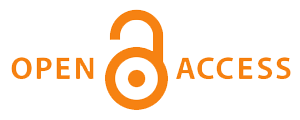Leverage and its impact on the profitability of Islamic banks in Iraq
Case Study: Islamic Cooperation Bank for Investment for the years (2015-2018)
Keywords:
الرافعة المالية, الربحية, الربح, الأداء الماليAbstract
This research deals with leverage and its impact on the profitability of Islamic banks in Iraq for the years (2015-2018), the research variables of leverage have been analyzed and measured as an independent variable, profitability as a dependent variable, and the research is based on a main hypothesis: there is a moral relationship of statistical significance. Between leverage and profitability at The Islamic Cooperation Bank for the period (2015-2018). The results of the research showed that there are moral (exorcist) relationships between the ratio of leverage and profitability indicators, as the higher the leverage ratio, the higher the profitability indicators. In addition, The Islamic Cooperation Bank has adopted a conservative policy in granting credit and investment, as a result of environmental factors, which led to a decrease in the balance of profitand credit. The research recommended the need for The Islamic Cooperation Bank to pay attention and take into account the most important factors that determine the behavior of the bank's financing structure, and what is the tendency of management to hold profits according to those factors, the most important of which is size, liquidity and assets, and to move banks characterized by high profitability rate They have the opportunity to withhold profits, to rely less on borrowed funds and to a high degree on retained profits, given the high risk of borrowing.
Downloads
Published
Issue
Section
License
The copyright is transferred to the journal when the researcher is notified of the acceptance of his research submitted for publication in the journal.


